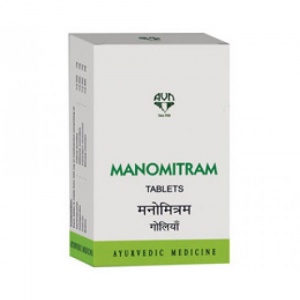Depression
Showing all 2 results
Depression is a primary affective disorder of mood. It is one of the most common psychological disorders affecting million’s of people worldwide.
What is Depression?
Depression is a primary affective disorder of mood. It is one of the most common psychological disorders affecting 127 million people worldwide, according tho the World Health Organization It is usually precipitated by a wide range of environmental factors. It changes your thinking pattern and behavior. Daily activities become a burden and life itself seems worthless. Depression is characterized by recurrences; if recurrences always take a depressive form, it is called as ‘Unipolar’; if recurrences are both manic and depressive; it is called as ‘Bipolar’ disorder. It is more common in women; especially those in their child bearing years are more vulnerable.
What are the Causes of Depression?
Genetics: There is convincing evidence of a genetic contribution to bipolar disorders, although the mode of inheritance is not clear. Environment: Many environmental factors have been implicated; the 3 most common ones are loss of a parent in childhood, lack of social support and recent adverse life events. Gender: Women are more vulnerable especially if they have lost their mother at a young age, have grown up with multiple siblings in the same house, there is lack of a confiding relationship or there is a lack of employment. Physical illness: All physical illnesses can be followed by depression, especially those like cancer and heart disease which carry serious implications. Mood change can also be associated with drug therapy ex. Corticosteroids, anti hypertensives etc. Personality: Some individuals have personality characteristics which are thought to predispose to their illness. These involve a negative attitude to oneself, the outside world and the future.
What are the Symptoms of Depression?
The most fundamental symptom although not always the most prominent, is depression of mood. This varies considerably in severity from one patient to another and even with the same individual from time to time. There may be a diurnal variation of mood, depression being most distressing in the morning or at the end of the day. Associated psychological symptoms include loss of pleasure in life, loss of interest in one’s self and others, low self esteem, self blame and hopelessness. Suicidal tendencies are common. In mild depression, this consists of a passive wish to be dead, but, in more severe cases there are active thoughts of suicide and the patient may have made detailed plans as to how he will end his life. Severe depression may be accompanied with feelings of guilt and worthlessness which are delusional in nature. Physical symptoms may dominate the clinical picture and are often symptoms with which the patient presents to the physician. These include: -- Sleep disturbance -- Fatigue -- Headache -- Pain in different parts of the body like chest and abdominal pain -- Loss of appetite -- Weight change -- Constipation -- Reduced libido -- Poor concentration -- Psychomotor retardation
How is Depression Diagnosed?
If you have been suffering from feelings of depression for few weeks, you must consult your physician. The physician takes a detailed history of all signs and symptoms including mood swings and behavior. Patients are asked to fill various questionnaires to assess their score, which helps the physician get a fair idea of the stage and kind of depression the person is suffering from. Diagnosis is based on the presence of mood disturbance together with some of the associated features. The following criteria have been proposed for the diagnosis of a major depressive episode. At least 5 of the symptoms listed below, including at least 1 of the first two, must be present nearly every day over a 2 week period. Depressed mood most of the day Markedly diminished interest in almost all activities most of the day Significant weight gain or loss (at least 5% in one month) Inability to sleep or excessive sleep Fatigue or loss of memory Feelings of worthlessness or excessive guilt Diminished ability to think or concentrate, or indecisiveness Recurrent thoughts of death or suicide.
How is Depression Treated?
Treatment Outpatient management is sufficient in most cases.
Hospitalization is necessary when there is a strong risk of suicide or when social supports are inadequate.
Drug therapy Antidepressant drugs like Tricyclics and MAOinhibitors relieve depressive symptoms in approximately 2/3 rd of patients. A tricyclic drug like Amitriptylline is the first choice of treatment. It should be taken for at least 6 weeks, and then if symptoms have responded, it should be continued for at least 6 months to prevent relapse.Patients should be advised that it would take 2-3 weeks to notice improvement. If response to single agent therapy is poor, another drug like a MOA inhibitor can be added to the regimen.
Cognitive therapy This approach is based on the assumption that some psychiatric disorders are due to a negative pattern of thinking. In depression, a negative triad of feelings has been described, the 3 components of which are: -- devaluation of self -- negative view of current life experiences -- negative view of the future. Cognitive therapy aims at modifying patterns of thinking in a positive way; it is assumed that improvements in mood and behavior will follow. The therapist has to identify the negative thoughts and help the patient see the connection between them and his mood or behavior. The patient is encouraged to monitor the negative thoughts and to analyze them logically. The final step is to substitute positive patterns of thinking which are more in keeping with reality.
Electroconvulsive therapy (ECT) ECT is indicated when the risk of suicide is so great that one cannot wait for the delayed therapeutic effect of the anti depressant drug.
We recommend?
The herbs predominantly used in depression include:
Ashwagandha (Withania somnifera)
A well established adaptogen , ashwagandha rejuvenates the body holistically , lifts mood and works to efface negativity from the mind. Its neuroprotective property helps strengthen the brain and promotes clarity.
Brahmi (Bacopa monnieri)
Brahmi is a full-fledged nootropic herb. It has marvelous brain rejuvenating properties and revitalizes the brain apparatus.
Guduchi (Tinospora cordifolia)
This herb is said to possess rejuvenating and immune enhancing properties that increase strength and revitalize cognitive functions and memory, making it a supreme choice for reviving mental alertness that slackens in some forms of depression.
Jatamansi (Nardostachys jatamansi)
Using this herb soothes your mind and channelizes your energies uplifting your mood and removing depressive thoughts.
These are just of the herbs that benefit in depression. At VedHerbs, we infuse the best combinations of clinically tested herbs and homeopathic tinctures to provide a holistic solution that works across all spectra of an individual.
You can call in or chat with one of our experts to get more information on these techniques or else you can set up an appointment for a Free Online consultation by emailing us on doctor@vedherbs.com.



